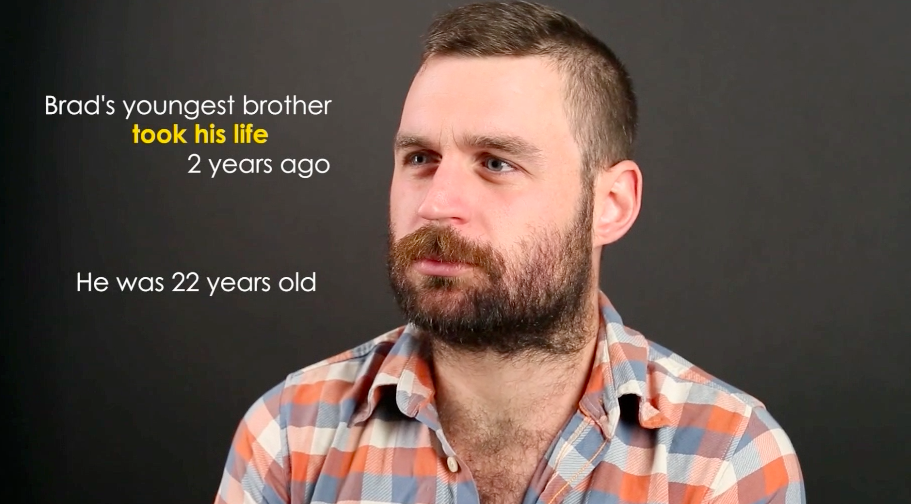In 2013, suicide was the leading cause of death for Australians ages 25–44, and in 2009 it was the third leading cause of death for Americans ages 15–24.
View this video on YouTube
Peta lost her daughter to suicide one year ago.

Peta and many others who have lost loved ones to mental illness hope to destigmatize it...
...If only to prevent others from feeling the same pain they have suffered firsthand.
Audrey lost her younger sister to suicide last year.

Afterward, she developed her own mental illness.
Caitlin lost her father and grandfather to suicide.

"People are still not talking about it. People are still pretending it's not happening."
Cass lost her best friend three months ago...

...And not a day goes by that she doesn't feel that loss.
Brad lost his youngest brother to suicide two years ago.

He especially feels the loss of his brother amplified around holidays and birthdays.
"I felt powerless."
Sally lost her father to suicide when she was 21 years old.

"My phone lit up and I knew what the call was about."
And James lost his best friend to suicide only four weeks ago.

"Mental health is not a weakness."
As difficult as it is to open up about such a devastating topic, each participant feels it is important to speak out.
Because they know how crucial it is to have an open discourse about mental illness and suicide prevention.
They know that life is fragile.
If you, or someone you love, is suffering from mental illness — please seek help and know that you are loved.
If you are in a crisis in Australia, see a list of resources here. If you are based in the U.S., call the National Suicide Prevention Lifeline at 1-800-273-TALK (8255).



